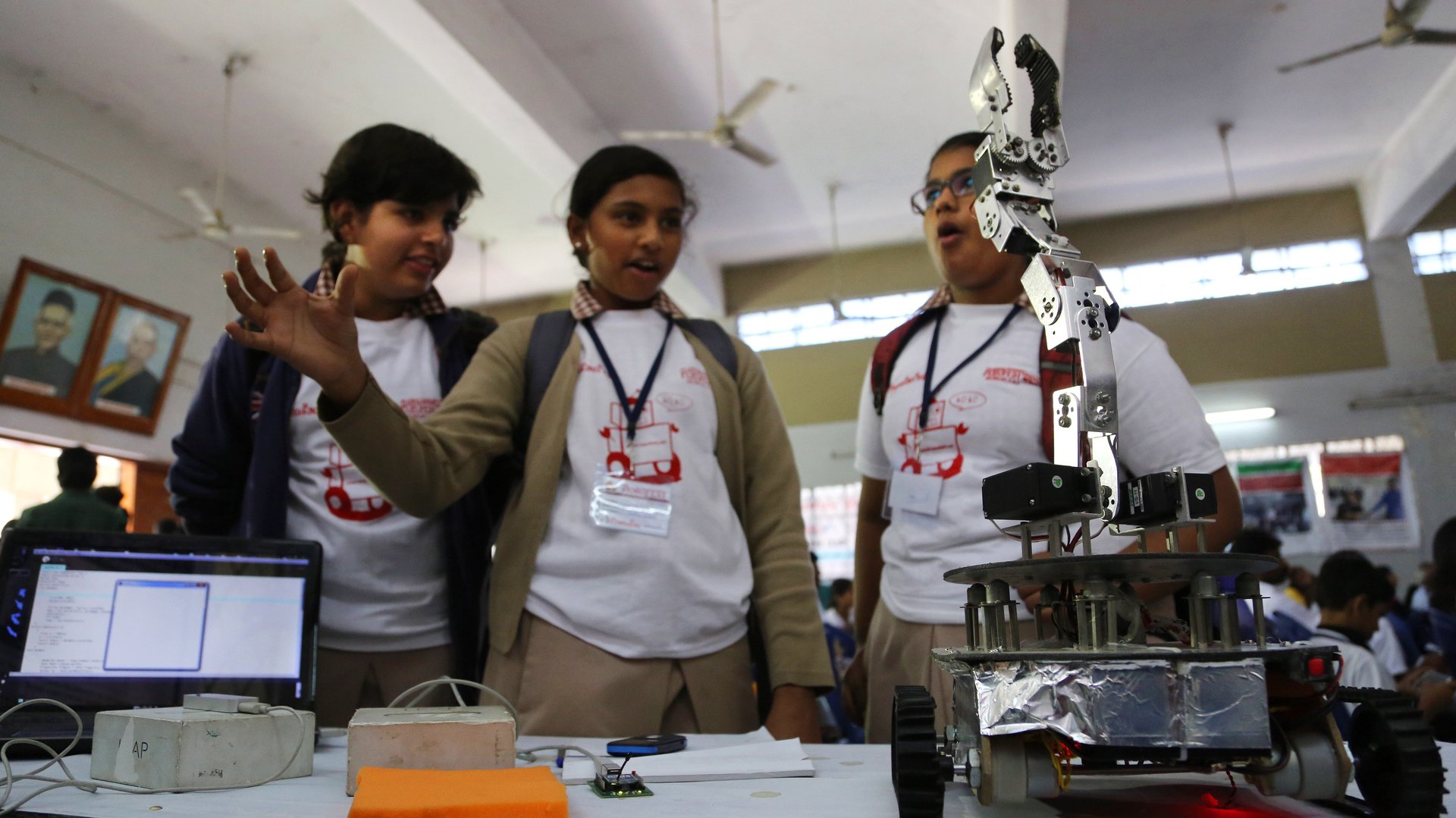Indian millennials don’t seem very worried about losing their jobs to machines
India’s youth are confident that they’re ready take on the automation trend. According to a new survey of more than 1,000 young professionals, most millennials in India don’t view the impending surge in automation as a threat to their jobs.


India’s youth are confident that they’re ready take on the automation trend. According to a new survey of more than 1,000 young professionals, most millennials in India don’t view the impending surge in automation as a threat to their jobs.
A full 83% of 21-to-24-year-olds surveyed by Talentedge, an education technology firm based in Gurgaon, said they were confident that automation will not render their job roles obsolete, and 43% of them believed they already had the skills to tackle automation. Respondents in the 25-to-30-year-old age group were less convinced—44% of this group saw a future where robots could take over their jobs. However, nearly half of them said they would build up their skills to combat any chances of losing a job to a robot.
“A growing trend in the last few years has been an increasing number of working professionals opting for online courses, with an aim to acquire new skills and competencies to remain relevant,” Talentedge CEO Aditya Malik says.
Respondents who worked for companies that had recently fired people, or ones that had plans for layoffs, mostly did not hold automation responsible for the downsizings. But those under the age of 24 were most likely to think that way—64% of them said automation wasn’t the primary reason for the layoffs around them, while just under half of respondents aged 25 to 30 concurred.
Forecasts by Indian employers suggest that workers ought to be a bit less optimistic about what automation portends for their future. More than a quarter of them plan to cut headcounts as a result of automation, while just 12% of employers globally expect to do so, according to a 2017 report from ManpowerGroup covering 18,000 employers from 43 countries.
Although robots are mainly slated to take over mundane, repetitive tasks while leaving skill-heavy jobs for humans, that’s hardly reassuring for India, where only 2% of the workforce is skilled. Even though the government takes measures to help citizens develop new skills—one such program (pdf) aims to train at least 300 million skilled workers by 2022—a 2012 Oxford study (pdf) suggests that the system fails to reach 90% of the country’s working population.